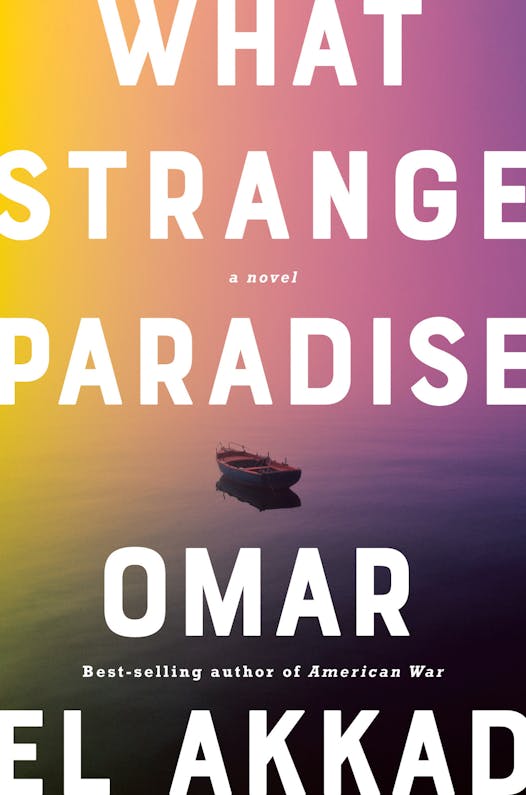In his 2017 debut novel, "American War," Omar El Akkad spotlighted Middle East humanitarian crises by reimagining them on U.S. soil. Perhaps, the novel implied, Americans might pay refugees and sectarian violence closer attention if we witnessed them in a near-future dystopian South.
His follow-up, "What Strange Paradise," doesn't strive to be nearly so high-concept. Indeed, it's simple in the way that novels like "The Stranger" or "Of Mice and Men" are: brief, taut, coolly delivered but with seas of emotion swirling beneath.
Here, the focus is on Middle Eastern migrants, centered on the travails of one boy, Amir. He and his family are escaping Syria, but El Akkad dwells little on the particulars of the conflict there. He is simply a member of "the oldest tribe, the tribe of endless leaving." The novel opens with the aftermath of that departure, with Amir washed up on the beach of an unnamed island.
Fleeing the authorities, he finds a protector in Vanna, a teenage girl with more compassion than her parents, the police or the tourists who see a grounded ship full of migrants as an inconvenience.
In the "Before" chapters, El Akkad relates Amir's trek from Syria to Egypt, where he sneaks onto an overcrowded and ill-piloted ferryboat heading north. The "After" chapters follow his and Vanna's efforts to get him to safety. El Akkad cleanly renders the inherent tensions in both timelines. Will Amir successfully navigate the squalor and danger of the ramshackle boat? Will he somehow find his way to freedom?
Though Amir is the story's center, he's enveloped in El Akkad's stiffer metacommentary on the migrant crisis from secondary characters. When a bureaucrat tries to cool down a vindictive military officer by saying, "It's not a colonization, it's just a bunch of people on boats," he snaps back: "All colonization is just a bunch of people on boats."
A migrant on the ferry lectures the passengers to keep their ambitions for freedom low: "Go ahead, change your country, change your name, change your accent, pull the skin right off your bones, but in their eyes they will always be engines and you will always, always be fuel."
The novel is strongest when El Akkad's lens is trained on Vanna and Amir. He refers to them together as "children," which is factually true, but also emphasizes the point that surviving in a hardhearted environment — even thinking of survival — requires a certain innocence. And a late twist in the novel applies some of that innocence to the reader. We're too easily tempted to apply pleasant, novelistic arcs to human lives, El Akkad suggests. He uses his own novel to remind us to distrust that instinct.
Mark Athitakis is a reviewer in Phoenix.
What Strange Paradise
By: Omar El Akkad.
Publisher: Alfred A. Knopf, 256 pages, $25.95.

The 5 best things our food writers ate this week

A Minnesota field guide to snow shovels: Which one's best?

Summer Camp Guide: Find your best ones here

Lowertown St. Paul losing another restaurant as Dark Horse announces closing



